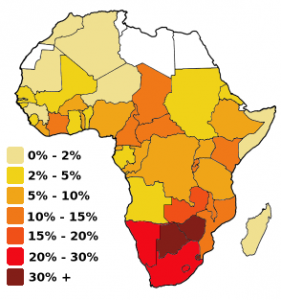 Address of Pope Benedict XVI to the 12th General Assembly of the Pontifical Academy for Life and the congress on “The Human Embryo in the Pre-Implantation Phase”.
Address of Pope Benedict XVI to the 12th General Assembly of the Pontifical Academy for Life and the congress on “The Human Embryo in the Pre-Implantation Phase”.
Vatican, Clementine Hall
Monday, 27 February 2006
Venerable Brothers in the Episcopate and in the Priesthood,
Distinguished Ladies and Gentlemen,
I address a respectful and cordial greeting to everyone on the occasion of the General Assembly of the Pontifical Academy for Life and the International Congress on: “The human embryo in the pre-implantation phase”, which has just begun.
I greet in particular Cardinal Javier Lozano Barragàn, President of the Pontifical Council for Health Pastoral Care, as well as Bishop Elio Sgreccia, President of the Pontifical Academy for Life, whom I thank for the kind words with which he has presented clearly the special interest of the themes treated on this occasion, and I greet Cardinal-elect Carlo Caffarra, a long-standing friend.
Indeed, the study topic chosen for your Assembly, “The human embryo in the pre-implantation phase”, that is, in the very first days subsequent to conception, is an extremely important issue today, both because of the obvious repercussions on philosophical-anthropological and ethical thought, and also because of the prospects applicable in the context of the biomedical and juridical sciences.
It is certainly a fascinating topic, however difficult and demanding it may be, given the delicate nature of the subject under examination and the complexity of the epistemological problems that concern the relationship between the revelation of facts at the level of the experimental sciences and the consequent, necessary anthropological reflection on values.
As it is easy to see, neither Sacred Scripture nor the oldest Christian Tradition can contain any explicit treatment of your theme. St Luke, nevertheless, testifies to the active, though hidden, presence of the two infants.
He recounts the meeting of the Mother of Jesus, who had conceived him in her virginal womb only a few days earlier, with the mother of John the Baptist, who was already in the sixth month of her pregnancy: “When Elizabeth heard Mary’s greeting, the baby leapt in her womb” (Lk 1: 41).
St Ambrose comments: Elizabeth “perceived the arrival of Mary, he (John) perceived the arrival of the Lord the woman, the arrival of the Woman, the child, the arrival of the Child” (Comm. in Luc. 2: 19, 22-26).
Even in the absence of explicit teaching on the very first days of life of the unborn child, it is possible to find valuable information in Sacred Scripture that elicits sentiments of admiration and respect for the newly conceived human being, especially in those who, like you, are proposing to study the mystery of human procreation.
The sacred books, in fact, set out to show God’s love for every human being even before he has been formed in his mother’s womb.
“Before I formed you in the womb I knew you, and before you were born I consecrated you” (Jer 1: 5), God said to the Prophet Jeremiah. And the Psalmist recognizes with gratitude: “You did form my inward parts, you did knit me together in my mother’s womb. I praise you, for you are fearful and wonderful. Wonderful are your works! You know me right well” (Ps 139[138]: 13-14).
These words acquire their full, rich meaning when one thinks that God intervenes directly in the creation of the soul of every new human being.
God’s love does not differentiate between the newly conceived infant still in his or her mother’s womb and the child or young person, or the adult and the elderly person. God does not distinguish between them because he sees an impression of his own image and likeness (Gn 1: 26) in each one.
He makes no distinctions because he perceives in all of them a reflection of the face of his Only-begotten Son, whom “he chose… before the foundation of the world…. He destined us in love to be his sons… according to the purpose of his will” (Eph 1: 4-6).
This boundless and almost incomprehensible love of God for the human being reveals the degree to which the human person deserves to be loved in himself, independently of any other consideration – intelligence, beauty, health, youth, integrity, and so forth. In short, human life is always a good, for it “is a manifestation of God in the world, a sign of his presence, a trace of his glory” (Evangelium Vitae, n. 34).
Indeed, the human person has been endowed with a very exalted dignity, which is rooted in the intimate bond that unites him with his Creator: a reflection of God’s own reality shines out in the human person, in every person, whatever the stage or condition of his life.
Therefore, the Magisterium of the Church has constantly proclaimed the sacred and inviolable character of every human life from its conception until its natural end (cf. ibid., n. 57). This moral judgment also applies to the origins of the life of an embryo even before it is implanted in the mother’s womb, which will protect and nourish it for nine months until the moment of birth: “Human life is sacred and inviolable at every moment of existence, including the initial phase which precedes birth” (ibid., n. 61).
I know well, dear scholars, with what sentiments of wonder and profound respect for the human being you carry out your demanding and fruitful work of research precisely on the origin of human life itself it is a mystery on whose significance science will be increasingly able to shed light, even if it will be difficult to decipher it completely.
Indeed, as soon as reason succeeds in overcoming a limit deemed insurmountable, it will be challenged by other limits as yet unknown. Man will always remain a deep and impenetrable enigma.
In the fourth century, St Cyril of Jerusalem already offered the following reflection to the catechumens who were preparing to receive Baptism: “Who prepared the cavity of the womb for the procreation of children? Who breathed life into the inanimate fetus within it? Who knit us together with bones and sinews and clothed us with skin and flesh (cf. Jb 10: 11), and as soon as the child is born, causes the breast to produce an abundance of milk? How is it that the child, in growing, becomes an adolescent, and from an adolescent is transformed into a young man, then an adult and finally an old man, without anyone being able to identify the precise day on which the change occurred?”.
And he concluded: “O Man, you are seeing the Craftsman you are seeing the wise Creator” (Catechesi Battesimale, 9, 15-16).
At the beginning of the third millennium these considerations still apply. They are addressed not so much to the physical or physiological phenomenon as rather to its anthropological and metaphysical significance. We have made enormous headway in our knowledge and have defined more clearly the limits of our ignorance but it always seems too arduous for human intelligence to realize that in looking at creation, we encounter the impression of the Creator.
In fact, those who love the truth, like you, dear scholars, should perceive that research on such profound topics places us in the condition of seeing and, as it were, touching the hand of God. Beyond the limits of experimental methods, beyond the boundaries of the sphere which some call meta-analysis, wherever the perception of the senses no longer suffices or where neither the perception of the senses alone nor scientific verification is possible, begins the adventure of transcendence, the commitment to “go beyond” them.
Dear researchers and experts, I hope you will be more and more successful, not only in examining the reality that is the subject of your endeavour, but also in contemplating it in such a way that, together with your discoveries, questions will arise that lead to discovering in the beauty of creatures a reflection of the Creator.
In this context, I am eager to express my appreciation and gratitude to the Pontifical Academy for Life for its valuable work of “study, formation and information” which benefits the Dicasteries of the Holy See, the local Churches and scholars attentive to what the Church proposes on their terrain of scientific research and on human life in its relations with ethics and law.
Because of the urgency and importance of these problems, I consider the foundation of this Institution by my venerable Predecessor, John Paul II, providential. I therefore desire to express with sincere cordiality to all of you, the personnel and the members of the Pontifical Academy for Life, my closeness and support.
With these sentiments, as I entrust your work to Mary’s protection, I impart the Apostolic Blessing to you all.
© Copyright 2006 – Libreria Editrice Vaticana
 Does the pill only prevent conception or is there more to it. Tim Staples, apologist for ‘Catholic Answers’ in San Diego – California, addresses this question during a daily radio program where listeners can ask questions about anything that has to do with Catholic faith, including ethical issues. He deals with the definitions used in the medical field for conception and implantation of a human fetus.
Does the pill only prevent conception or is there more to it. Tim Staples, apologist for ‘Catholic Answers’ in San Diego – California, addresses this question during a daily radio program where listeners can ask questions about anything that has to do with Catholic faith, including ethical issues. He deals with the definitions used in the medical field for conception and implantation of a human fetus. 










